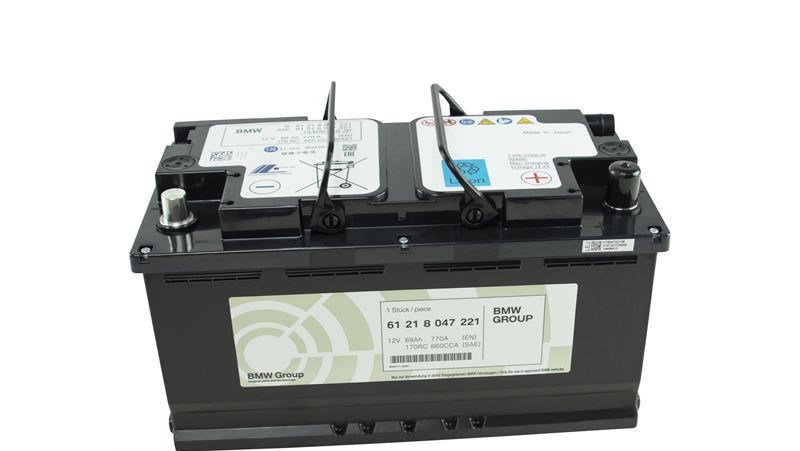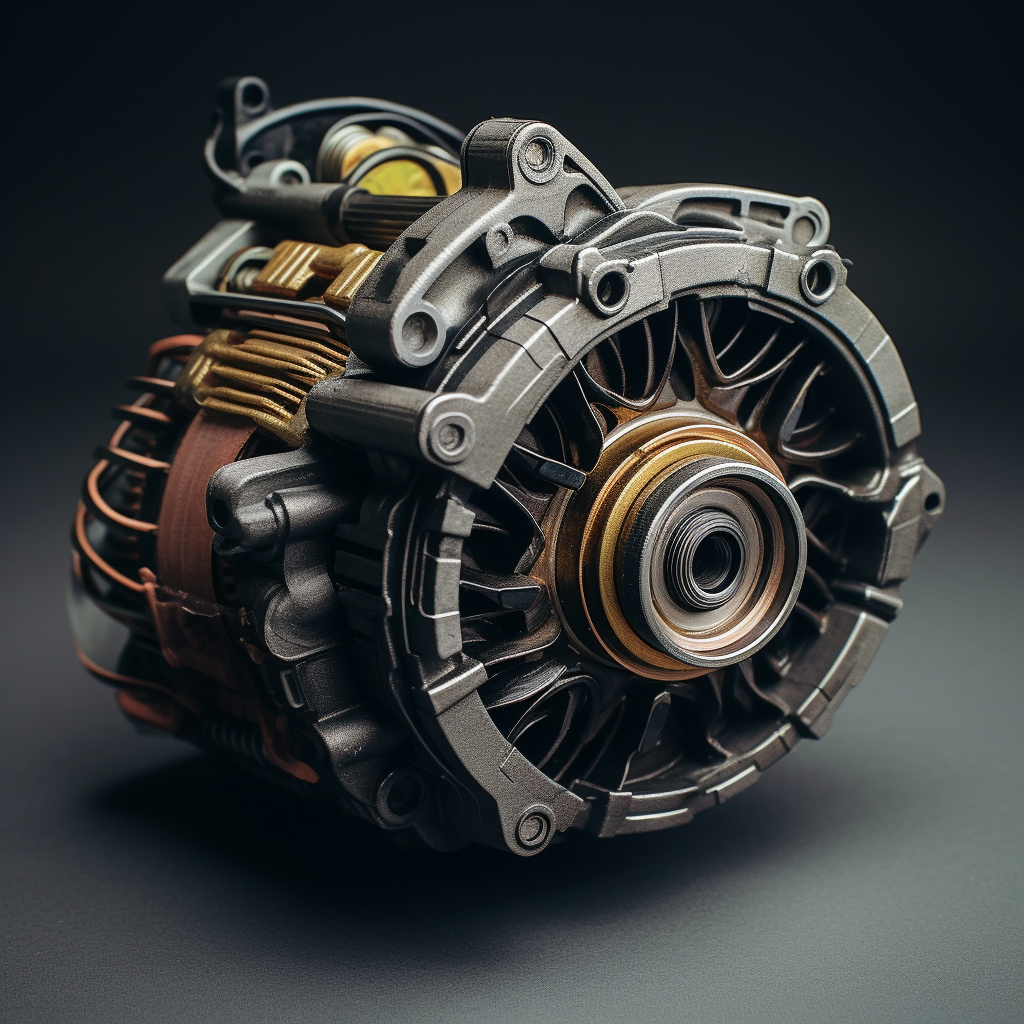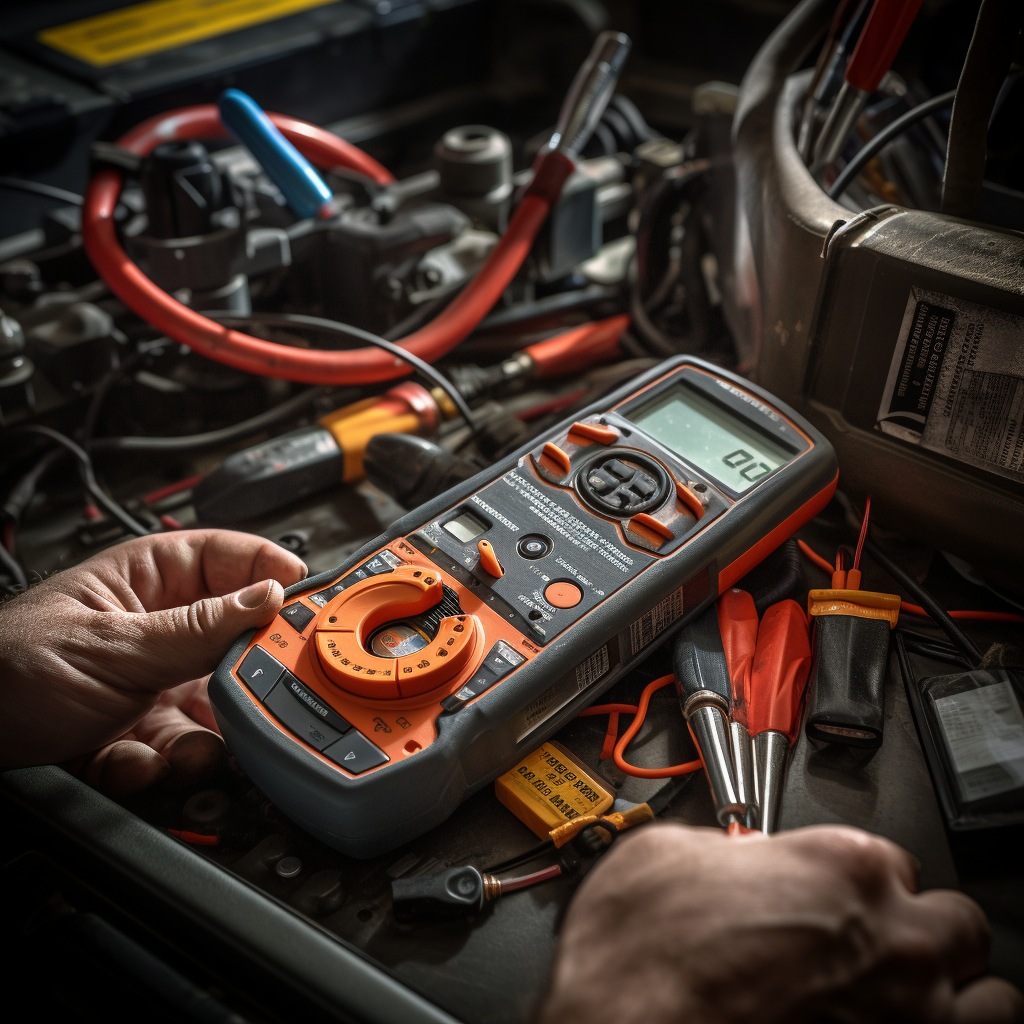Why does my BMW battery keep dying? This is a question that haunts many BMW owners and can be quite frustrating.
A dying BMW battery is not just irritating, but also inconvenient and potentially hazardous.
Understanding why your BMW battery keeps dying can help you prevent this from happening in the future. Let’s delve into the reasons behind this common problem.
Identifying the Problem
The good news here of course is that a dying BMW battery is not typically a sign of a major mechanical failure. Sometimes it’s as easy as simply replacing the battery and other times you might need to do a more thorough analysis to identify the fault. Let’s first dive into some of the signs of a failing battery as this is an essential first step.
Symptoms of a Failing Battery
A car’s battery that is nearing its end often gives certain telltale signals. One common sign could be a slow engine crank when attempting to start your BMW – an indication that there might not be enough power left in the original battery. If your battery is completely dead, you will hear a few clicks when you try to turn the car over but that’s it. See the link here for reference.
Inconsistent lighting inside your vehicle, such as dim or flickering lights, also points to a failing battery.
Battery Life Expectancy: How Long Should It Last?
The lifespan of traditional lead-acid batteries usually falls between three to five years. However, lithium-based batteries like those with lithium iron phosphate cells generally have longer lifespans due to their faster charging capabilities and ability to withstand more charge cycles.
In addition, one of BMW’s smarter innovations was to insert the battery in the trunk. Heat is the number one killer of automotive batteries which is why if you have owned an American or Japanese car, you likely noticed that the battery doesn’t last nearly as long as on a BMW. One of the biggest reasons for this is that BMWs, for the most part, come with batteries installed in the trunk, underneath the trunk lining. Far away from the heat of the engine. Due to BMW’s placement of batteries, I have had batteries last on my 3 Series BMWs eight years or longer!
Let’s take a look at some of the factors that could be impacting your BMW battery’s life expectancy.
High Current Consumption
A significant cause for concern in modern BMWs is high current consumption. The sophisticated electronic systems found in these vehicles require more power, leading to a higher strain on the car’s battery.
Battery Age and Type: Lead-Acid vs Lithium-Based Batteries

The age and type of a vehicle’s battery play crucial roles in determining its lifespan. Traditional lead-acid batteries often have shorter lifespans compared to lithium-based ones like lithium iron phosphate cells generally. Lithium-based batteries are renowned for their capability to charge more rapidly and bear heavier loads in comparison with conventional lead-acid types.
Poor Maintenance Practices Affecting Battery Life
Inadequate maintenance practices can significantly reduce a BMW’s battery lifespan. For instance, neglecting scheduled checks or ignoring signs that it might be time to replace the battery could result in a dramatic failure. It has been observed that a simple task such as cleaning terminals from corrosion build-up, if ignored, can drastically shorten its serviceable period.
Frequent Short Trips Reducing Car’s Overall Charge
If you frequently take short trips without sufficient driving time between them, this can also affect your original battery negatively because the alternator doesn’t get enough run-time to recharge the system fully after each start-up cycle. This can cause undue stress on electrical components, thereby negatively affecting the longevity and performance characteristics of the battery.
Diagnosing the Issue
The key to solving recurring battery problems in your BMW lies in accurate diagnosis. This involves a series of steps that help identify the root cause behind such issues.
Identifying a Bad Alternator

If you’re battery isn’t bad but it is still dying, the single most common cause is a bad alternator. Alternators are typically simple to diagnose, simple to replace and relatively inexpensive, so let’s dive a bit deeper.
The Role of an Alternator in Your BMW’s Battery Life
The alternator is responsible for recharging your BMW battery while your vehicle is running. If it fails to do its job efficiently, this leads to higher current consumption, which consequently wears out BMW batteries faster than usual. An efficient working alternator plays a crucial role in keeping your BMW battery fully charged.
Symptoms of a Failing Alternator
A common sign that there might be something wrong with your alternator includes dimming lights when driving at night or difficulty starting up the engine despite having recently replaced your BMW battery.
One personal experience from a bad alternator on my old 3 Series is that my car actually cut off in the middle of the road when I was driving home (luckily I was a few blocks away) due to a bad alternator.
Detecting Electrical Leaks

An electrical leak, or drain, is sometimes at fault when it comes to a car’s battery failing prematurely. This occurs when an electronic device continues drawing power even after you’ve turned off your engine – effectively causing faster wear on BMW batteries.
To detect these leaks, disconnect your vehicle’s negative battery terminal and connect it with a multimeter set on DC Amps mode. If there’s any reading above 50 milliamps, then you have an electrical leak which could be draining life from your battery. Check out this video here for a tutorial.
You can use a digital voltmeter for checking voltage level while remembering healthy traditional lead-acid should show around 12.6 volts fully charged and not under load conditions and when the engine is running, the battery voltage should show 13.5 to 14.5 volts.
Replacing the Battery
The process of replacing BMW batteries is actually quite simple. With a bit of technical knowledge and careful attention, you can successfully replace your battery in under 30 minutes.
Picking Your New Battery
Selecting an appropriate replacement for your car’s battery is crucial. It’s important to choose one that aligns with your specific model as different engine sizes have different battery requirements. Modern BMW models typically use lithium-based batteries such as li-ion or lithium iron phosphate cells because they offer faster charging times compared to their traditional lead-acid counterparts.
You can source these types of replacements from any reputable auto parts store or directly order them from BMW locally.
Removing the Old Battery
To remove an old battery from a modern BMW, you need to disconnect both terminals (negative first), unfasten any securing brackets, and carefully lift out the unit using suitable safety gear including gloves and eye protection.
Note on Lithium Ion Variant Batteries:
- Lithium ion variant (Li-Ion) versions are gaining popularity among newer models thanks to their lighter weight and improved performance over traditional ones.
- Bear in mind, though, Li-Ion variants require specialized chargers designed specifically for these cells, so ensure this tool comes included during purchase; otherwise, additional costs will incur.
- Last point worth mentioning here – unlike regular alternatives where recharging begins immediately upon engine ignition, Li-ions need a brief “rest period” after being installed before they’re ready to go again.
Fitting Your New Battery
In essence, installing new BMW batteries involves reversing the removal steps: place the new unit into its compartment, securely fasten it down, reconnect the positive terminal prior to the negative one, and finally, reset vehicle electronics by following manufacturer instructions provided within purchasing documentation available online.
Maintaining Your Battery
Ensuring your BMW’s battery lasts its full lifespan does not require much, but there are a few things to keep in mind.
Conduct Regular Checks
A critical part of maintaining your BMW’s battery is checking the battery terminals from time to time for any corrosion. Significantly corroded new battery terminals can be a sign of a more significant problem but some corrosion after a few years is not a reason to worry. Simply purchase a $5 terminal brush and cleaner and you’ll have your terminals restored in several minutes.
Adopt Careful Usage Habits
Your driving habits also significantly influence how long your original BMW battery will last before needing replacement. Short trips in the city drain energy from the vehicle faster than longer ones because there isn’t enough time for recharging via alternator power generation. This is why primarily city-driven car batteries typically do not last as long as car batteries driven for frequent longer distances.
Professional Assistance

If your BMW’s battery continues to die despite your best efforts, it may be time to seek professional assistance. Modern BMWs can sometimes present complex issues that require expert attention.
1. Visiting a BMW Dealership
A BMW dealership near you is often the first port of call for many owners facing problems with their car’s battery. These dealerships employ technicians who are trained specifically in handling various models of BMWs and have access to specialized diagnostic tools capable of identifying any underlying issues leading to higher current consumption or BMW battery wear.
The downside? The cost at these facilities tends to be higher than independent shops, but if you’re still under warranty, some or all costs could potentially be covered.
2. Independent Auto Repair Shops Specializing in European Cars
An alternative option would involve seeking help from an independent auto repair shop specializing in European cars, which usually offer competitive rates compared with dealerships without compromising on quality service.
Where to Find A New Battery
If your BMW has been needing to have its battery replaced often, it’s essential that you know where to locate a good one. There are a few places that offer reliable BMW batteries.
Purchasing from the Original Manufacturer
The most straightforward option when looking for new BMW batteries would be directly from BMW. This guarantees compatibility with your vehicle model, however, BMW dealerships have a bad habit of over-charging for anything and everything.
Finding Batteries Locally
You also have the option of sourcing replacement parts locally. Local auto stores usually carry both conventional lead-acid variants and newer li-ion versions suitable for various models of multiple older BMWs. However, always ensure these meet all necessary specifications before purchasing them, even if they’re cheaper alternatives.
Browsing Online Retailers
Lastly, online platforms like Amazon or eBay offer a wide range of options from original equipment manufacturers’ products to more affordable generic alternatives, depending on specific needs. For individuals who don’t mind waiting for delivery instead of buying from a nearby physical store, these platforms provide the convenience of comparing brands and reading customer reviews in seconds.
Conclusion
Understanding why your BMW battery keeps dying is the first step towards a solution. We’ve explored signs of a failing battery, common causes, and how to diagnose these issues. You now know how to replace your BMW battery correctly and safely. Keep in mind that maintaining optimal battery performance requires some basic checks and care.
Ready for more insights into owning a BMW? At A Better BMW, we’re dedicated to helping owners like you get the most out of their vehicles. From reviews to repair articles or buyer guides – we have it all! Visit us today, let’s make your journey with your BMW smoother!
Frequently Asked Questions
What is draining my car battery when it’s off?
Parasitic drain can deplete your battery while it’s off. This occurs when devices like the radio, alarm system, or even faulty wiring continue to draw power after the engine is shut down.
How do you know if your BMW battery is bad?
A sluggish start, dimming headlights and dashboard lights, or a frequent need for a jump-start are signs of a failing BMW battery.
How long should my BMW battery last?
The average lifespan of a BMW battery ranges from 4-7 years. However, driving habits and climate conditions may affect this duration.
Why does my car battery keep dying after starting?
If your car’s alternator isn’t functioning properly, it might not be charging the battery as needed during operation, causing repeated deaths post-ignition.
